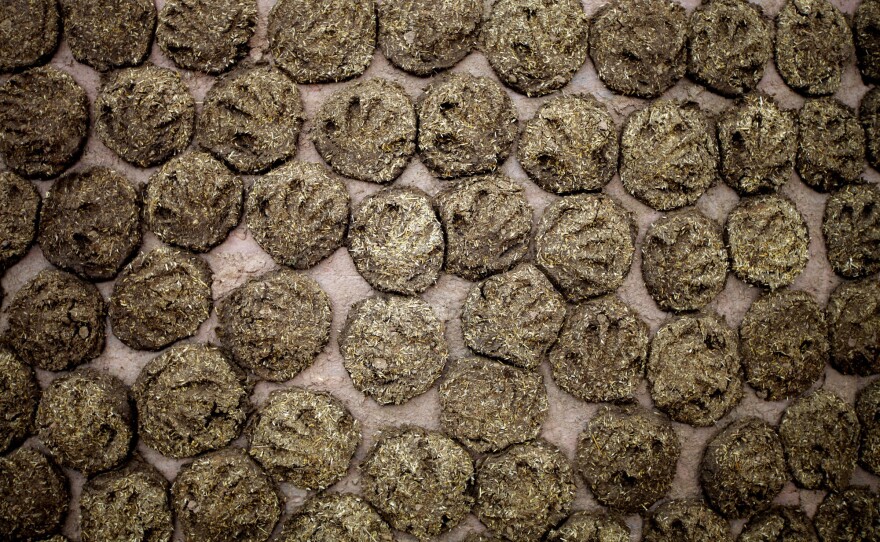When I was a child growing up in India, once every year my father took my two siblings, my mother and me to the village where he grew up. He thought it was important for us kids to see rural living and to learn how basic life could be. He often said, "City folks are lucky to have cooking gas cylinders. You'll see how food is cooked in the village."
His village, Dev Gaon, is about 60 miles from Lucknow — the city where I was born and bred. We usually rode a government-operated bus for about two hours to get there. The last stretch had to be traveled in a cart pulled by two bullocks. The only cushioning was a thin layer of hay. It was very uncomfortable. My mother hated it, but my siblings and I loved it. It was a different kind of experience for us. A lot changed in the last 10 miles. The road was just mud, flanked by sugarcane fields. Brick houses gave way to mud houses.
When we arrived at my grandmother's mud house, we saw her waiting in the large front yard. She sat us down on her veranda. One half of the veranda was her kitchen. She had a U-shaped stove that was made of mud and nothing else. She grabbed a stack of dried cow dung cakes from a much larger pile sitting in one corner of the courtyard and set them in her kitchen. She threw a few of them, along with chopped wood, into the stove to start the fire. The earthy and pungent aroma of burning cow dung stayed in my nose long after the food was cooked.

The dried cow dung cakes came from the cows she owned. As a kid, I stood and watched how her helpers, other women from the village, collected the dung from the barn, mixed it with hay and rolled it into large balls. They smacked each cake on one of the walls, using their bare hands, which left an imprint. It took about three days for the cow dung to dry. It had to be dry enough to be used as fuel. It felt light, rough to touch and smelled like manure.
This was in my ancestral village, but even in the city of Lucknow, I have seen cow dung drying on walls in some streets and in some areas, I have seen people using it to cook. That's not a good thing. Cow dung cakes can create a lot of smoke and pollution. The World Health Organization issued a report in 2014 saying that indoor air pollution "is the world's largest single environmental risk." In India, a major source is the use of solid fuels like wood, coal and cow dung in clay or brick ovens.
I remember my grandmother getting into a coughing fit while getting the fire ready in her stove. She had a large house and a lot of open space to cook in her village, but people live in small spaces in cities.
In most urban areas in India, cow dung is not the preferred method of cooking, but in the Hindu religion it is used in fires for religious rituals such as the purification of a house or a house-warming ceremony. Since cows are considered to be holy by Hindus, their dung is also sacred.
I learned that cow dung cakes can now be ordered on the Indian Amazon website. Out of curiosity, I ordered 6 pieces. It cost me 236 rupees, about $4. I called the local office of Amazon and spoke to Jaideep, who was very courteous and happy to answer my questions. He said, "Sir, this is a new product that Amazon is selling and they are getting a lot of orders from folks in urban areas where it is not so easy to find cow dung cakes." When I asked him what people wanted it for, he said, "They use it for religious purposes only."
I had never imagined one day I would order cow poop online — poop that I had once seen my grandma collect from her barn and dry on her wall. I am eagerly waiting to receive my six pieces of round-shaped cow dung cakes in the mail. I wonder what would my grandma think of it if she were still alive.
Deepak Singh is a writer living in Ann Arbor, Mich. He tweets as @deepakwriter.
Copyright 2021 NPR. To see more, visit https://www.npr.org.


